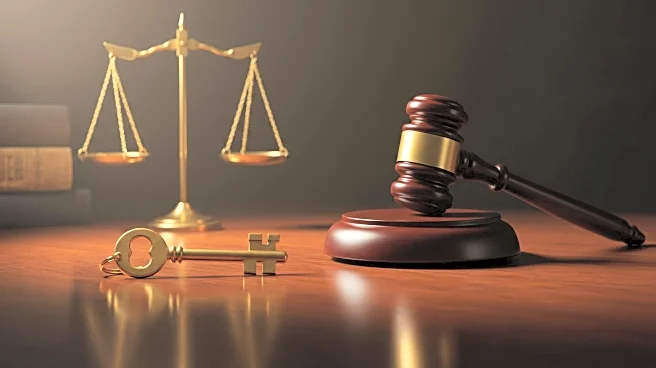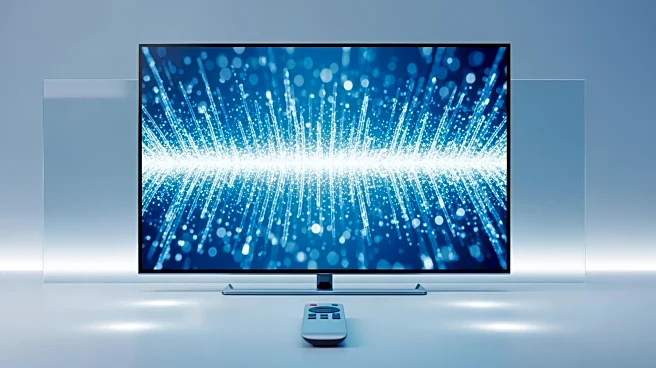What's Happening?
President Trump has vowed to secure the release of Jimmy Lai, a pro-democracy media mogul imprisoned in Hong Kong. Lai, who founded the now-defunct Apple Daily, faces charges under Hong Kong's national security law, including collusion with foreign forces and sedition. Trump made this promise during a podcast interview, asserting his confidence in negotiating Lai's release. The Hong Kong court is currently hearing closing arguments in Lai's trial, which could result in a life sentence. Trump's pledge comes amid ongoing trade negotiations with China, where Lai's case has reportedly been raised informally.
Why It's Important?
The case of Jimmy Lai is emblematic of the broader tensions between the U.S. and China, particularly concerning human rights and freedom of expression. Trump's commitment to Lai's release highlights the intersection of international diplomacy and domestic politics, as it could influence U.S.-China trade relations. The outcome of Lai's trial may impact Hong Kong's legal autonomy and its relationship with Beijing. For the U.S., securing Lai's release could bolster its stance on human rights, but it also risks complicating trade negotiations with China.
What's Next?
The Hong Kong court's decision on Lai's fate is pending, with closing arguments underway. If convicted, Lai could face life imprisonment, intensifying international scrutiny on Hong Kong's judicial independence. Trump's administration may continue to leverage trade talks to advocate for Lai's release, potentially affecting future U.S.-China relations. The situation remains fluid, with potential diplomatic interventions from other countries, including the UK, which has also called for Lai's release.
Beyond the Headlines
Lai's imprisonment raises questions about the erosion of civil liberties in Hong Kong and the implications for its status as a global financial hub. The case underscores the challenges faced by pro-democracy activists in the region and the broader geopolitical struggle between democratic and authoritarian regimes. Lai's situation could serve as a catalyst for international advocacy and policy shifts regarding human rights in China.









